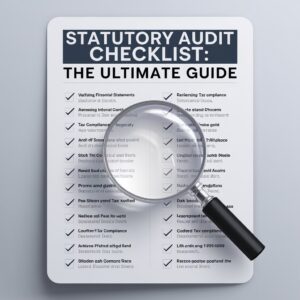The process of filing income tax returns in India has undergone significant changes with the introduction of e-filing. Private trusts, in particular, face challenges in understanding how to file their returns, choosing the correct form, and determining whether e-filing is required. This article examines the taxation of private trusts with determinate and indeterminate beneficiaries, as well as private specific and deterministic trusts.
How to Calculate Tax for Determinate Beneficiaries in a Private Trust?
When the shares of individual beneficiaries in a private trust are determined, the tax can either be assessed in the hands of the trustee as a representative assessee or directly in the hands of the beneficiary entitled to the income. The tax rate applied is based on the total income of each beneficiary.
If the trust’s income includes profits and gains from business, the entire income is taxed in the hands of the trustee(s) at the maximum marginal rate. This provision may not be favorable for trusts created entirely for the benefit of a dependent relative, particularly if such a trust is the sole one declared by the settlor.
How to Calculate Tax When Beneficiaries’ Shares Are Indeterminate or Unknown (Section 164)
When the shares of the beneficiaries in a trust are not specified or are unknown:
Trustee’s Tax Liability: The trustee is responsible for paying tax as a representative assessee.
If the Income Includes Business Profits: The entire income of the trust is taxed at the maximum marginal rate, except when:
The trust is created solely for the benefit of a dependent relative of the settlor.
It is the only trust declared by the settlor.
If the Income Does Not Include Business Profits: The income is taxed at the maximum marginal rate.
How to Calculate Tax for Private Specific Trusts?
The tax for private specific trusts is calculated in the same way as for individuals, based on the income tax slab rates starting from ₹1,80,000, after allowing deductions and set-offs for losses. If there are multiple beneficiaries, the slab starts from ₹1,80,000.
However, if the trust has business income, the applicable tax rate is 30% + 3%. But if all of the following three conditions are met, the tax will be calculated using the slab rates:
The trust has been created through a will and generates business income.
The trust is exclusively for the benefit of a relative who is dependent on the settlor for support and maintenance.
This is the only trust created by the settlor.
In the case of multiple beneficiaries, the trustee(s) will file only one return in their representative capacity.
How to Calculate Tax for Private Discretionary Trusts
If the Income Does Not Include Profits & Gains from Business or Profession (PGBP):
The general tax rate is 30% + 3% (EC). However, the tax is based on the slab rates if the following conditions are met:
Beneficiary Conditions:
None of the beneficiaries have taxable income exceeding ₹1,80,000, ₹1,90,000, or ₹2,50,000.
None of the beneficiaries are also beneficiaries of another private trust.
Trust Conditions:
The income or part of it is received under a trust created by a will, and that trust is the only one declared by the settlor.
The trust was created before 1st March 1970 through a non-testamentary instrument, and the assessing officer (A.O.) is satisfied that it was created genuinely for the benefit of the settlor’s dependent relatives. If the settlor is a Hindu Undivided Family (HUF), it should be exclusively for the benefit of the dependent members.
Income for Employee Benefit Funds:
The income is received by trustees on behalf of funds like provident funds, superannuation funds, gratuity funds, pension funds, or any other fund established by a person running a business or profession, exclusively for the benefit of employees.
In these cases, the tax will be computed according to the applicable slab rates instead of the general rate.
If the Income Includes PGBP (Profits and Gains of Business) Income:
General Tax Rate: 30% + 3%.
Slab Rate Tax: If the following conditions are met, the tax is calculated based on slab rates:
The trust is created through a will, and the income includes business profits.
The trust is solely for the benefit of a dependent relative of the settlor for their support and maintenance.
The trust is the only trust declared by the settlor.
Multiple Beneficiaries: If there are more than one beneficiary, the trustee will file only one return in their representative capacity.
Need Help?
FAQs
What is the process for calculating tax for determinate beneficiaries in a private trust?
Tax for determinate beneficiaries is assessed either in the trustee’s hands or directly in the beneficiary’s hands, based on their total income. If the trust includes business income, it is taxed at the maximum marginal rate.
How is tax calculated when the shares of beneficiaries are indeterminate or unknown under Section 164?
The trustee is liable for tax as a representative assessee. If the trust has business income, it is taxed at the maximum marginal rate, unless the trust is for a dependent relative.
How is tax calculated for private specific trusts?
Tax is calculated based on individual slab rates starting from ₹1,80,000, after deductions. If the trust has business income, the tax rate is 30% + 3%, unless certain conditions are met.
What tax rates apply to private discretionary trusts with business income?
The general tax rate is 30% + 3%, but if the trust is created through a will for a dependent relative, it may qualify for slab rates.
Are trusts created for employee benefit funds taxed differently?
Yes, income for employee benefit funds like provident funds or gratuity funds is taxed according to the applicable slab rates rather than the general tax rate.
When can a private trust be taxed at the slab rate instead of the maximum marginal rate?
A private trust can be taxed at slab rates if it meets specific conditions, such as being created by will for a dependent relative and being the only trust declared by the settlor.
Is e-filing mandatory for private trust income tax returns?
While not explicitly stated, e-filing is recommended due to the significant changes in the income tax return filing process in India.
Table of Contents
Toggle



